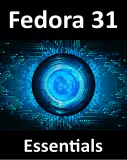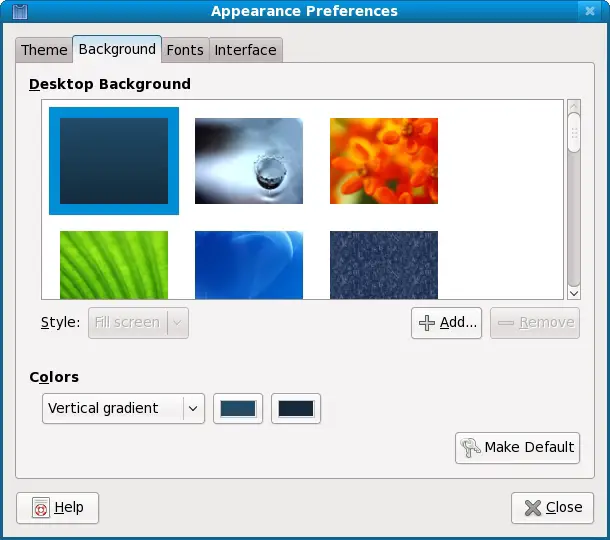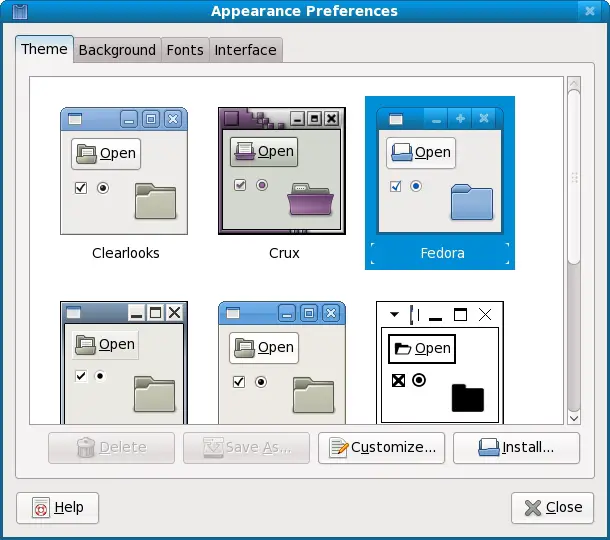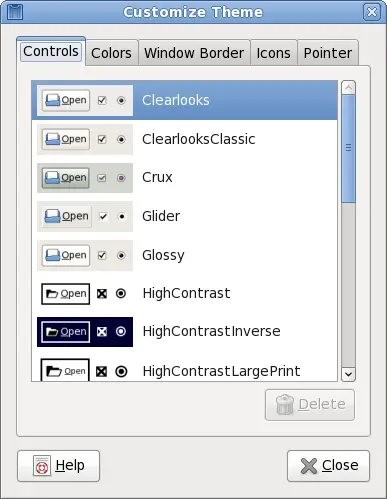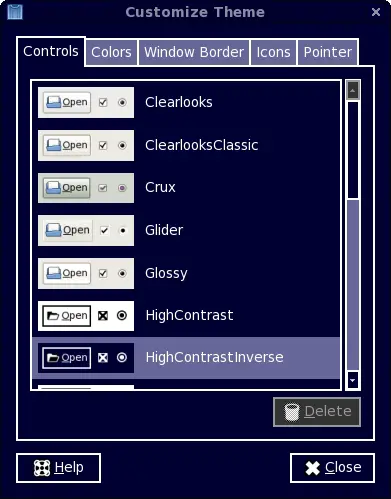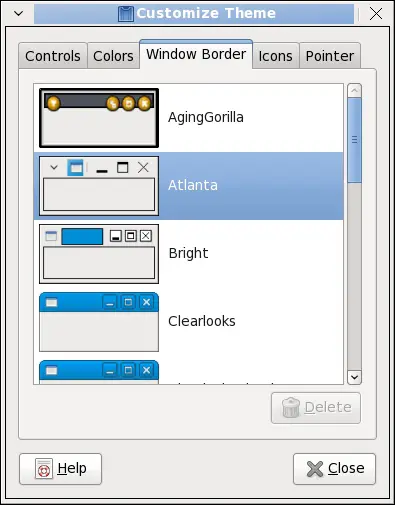Configuring the Fedora GNOME Desktop Background and Themes
| Previous | Table of Contents | Next |
| Configuring Fedora GNOME Screen Resolution (Removing the Black Border) | Customizing the Fedora GNOME Desktop Panels |
Take your Fedora Linux Skills to the Next Level |
When you first install and run Fedora Linux the first thing you see when you log in is the default desktop. It has the Fedora color scheme and panels at the top and bottom of the screen. There are two predominant desktop environments available with Linux - the GNOME desktop and the KDE desktop. Which is the best desktop is matter of preference and heated disagreement in the Linux community. Both are excellent, feature rich desktops. The Fedora Linux distribution installs the GNOME desktop by default, and that is the desktop covered in this chapter of Fedora Linux Essentials.
The remarkable thing about the desktop is that just about everything you currently see can be changed in some way. This chapter will provide details on how to customize the desktop to your liking.
Changing the GNOME Desktop Background
The GNOME desktop allows the background to be changed either to a solid or graded color, or to any image you choose to specify. There are three methods for changing the background, either by clicking with the right hand mouse button on the actual desktop background and selecting Change Desktop Background, selecting the Administration->Preferences->Appearance menu option and clicking the Background tab, or clicking with the right hand-mouse button on an image in a web browser and selecting Set As Desktop Background. The latter method allows you find images from one of the many web sites that provide them and quickly make it your background.
The Desktop Background Properties dialog appears as follows:
Select an image from the list or click on Add... to browse your file system for an image of your own. Alternatively, select the option in the top left hand corner of the wallpaper options (as illustrated in the preceding figure) and choose a color and grading style from the Desktop Colors section of the dialog. Click the Close button to exit the preferences dialog.
Changing the GNOME Desktop Theme
The desktop themes define the color and shape of the decorations around the Windows and the color schemes used for the foreground and background of dialog contents. By default Fedora uses the Fedora theme. This is essentially a theme called Clearlooks with blue colors applied to it. A number of pre-installed themes are also available for selection, and many themes are available for download online.
Themes are controlled by the Theme of the Appearance Preferences dialog which is accessed from the Administration->Preferences->Appearance menu option. When selected, the Themes page of the preferences dialog appears as illustrated in the figure below:
To install a new theme from the list simply select it from the list displayed. The desktop will immediately change to reflect the new theme.
Customizing a Desktop Theme
In addition to selecting a theme it is also possible to customize an existing theme. For example, it is possible to change the colors and borders of the Clearlooks theme. To try this, select the Clearlooks theme from the main screen of the Theme Preferences dialog and click on the Customize... button. The Customize Theme dialog will appear as follows:
Any new selection from the list of Controls will immediately be reflected in the desktop. For example the following screenshot shows the Customize Theme dialog with HighContrastInverse selected:
Colors can be changed by selecting the Colors tab of the Customize Theme dialog and changing the color settings for the windows, text input fields, tooltips and item selection highlighting.
The window border can similarly be changed by selecting from a range of pre-designed styles using the Window Border tab. The following screen shows the Atlanta Window Border Theme selected:
Finally, the style of icons displayed in the desktop can be changed. By default Fedora Linux uses the Fedora style of icons. The following image shows a portion of the desktop showing icons using the Fedora icon theme:
The following image shows the same desktop icons after the icon theme has been changed to High Contrast
Downloading and Installing Desktop Themes
If the selection of pre-installed themes does not provide a sufficiently broad selection of choices, there are many more themes available for download on the internet from http://art.gnome.org/themes/metacity. Both window border and icon themes are available.
Also, a few additional themes are also available in the gnome-themes-extras package which may be installed as follows:
su - yum install gnome-themes-extras
Once installed, these additional themes will be available from the Theme page of the Appearance Preferences tool.
To download a theme click on the theme from the http://art.gnome.org/themes/metacity web page and save it to your desktop. A new file should appear on your desktop containing the new theme. For example the following shows the Almond theme on the desktop and ready to be installed:
To install the theme open the Appearance Preferences dialog and select the Themes tab, click on the theme icon on the desktop with the left hand mouse button and drag the icon (keeping the mouse button depressed) onto the Appearance Preferences dialog. Release the mouse button to drop the theme. The theme will now be installed into the list of themes as Custom Theme. You will be asked if you wish to apply the theme. To save the new theme select it in the list and click on the Save As... button. In the resulting dialog enter a name for the new theme and press the Save button.
Once the theme is installed into the list of themes, the file may be deleted from the desktop. To do so, simply select the desktop icon and press the keyboard delete key.
Take your Fedora Linux Skills to the Next Level |
